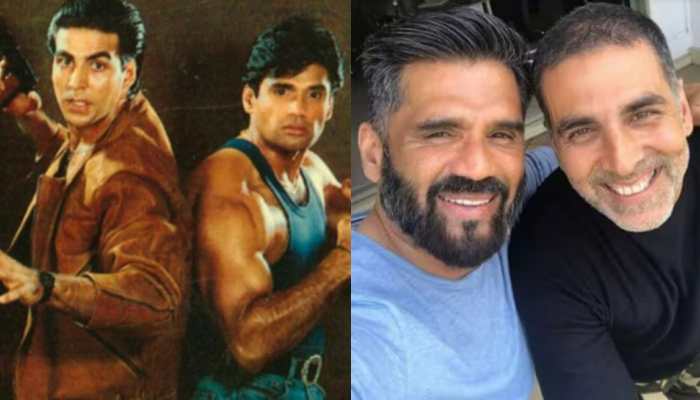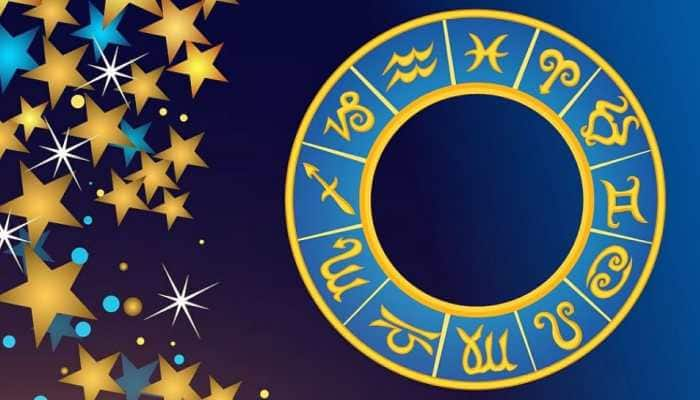Barack Obama-Raul Castro handshake sparks buzz, draws flak
After the rare, unanticipated gesture of handshake between US President Barack Obama and Cuban leader Raul Castro created a stir, the White House down played the event by saying that it was not a "pre-planned encounter".
Trending Photos
)
 Zee Media Bureau
Washington: After the rare, unanticipated gesture of handshake between US President Barack Obama and Cuban leader Raul Castro at Nelson Mandela Memorial service created a stir, the White House down played the event by saying that it was not a "pre-planned encounter".
"Above all else, today is about honoring Nelson Mandela, and that was the president`s singular focus at the memorial service," a White House official was quoted as saying.
Also, Obama adviser Ben Rhodes said the handshakes were not planned in advance and didn`t involve any substantive discussion. "The president didn`t see this as a venue to do business," he told reporters traveling back to Washington aboard Air Force One.
When Obama, who was quiet late for the memorial, approached the podium to make his speech, he had to cross many world leaders en route and Cuban President Raul Castro was one of them. Obama did not hesitate to extend his hand to the leader of the hostile nation who in turn reciprocated with a handshake and a smile. The duo also exchanged some pleasantries which was not audible.
Mr Obama also shook the hands of Robert Mugabe, the president of Zimbabwe, and kissed Dilma Rousseff on cheek, the president of Brazil despite recent tensions over US surveillance revealed in the National Security Agency leaks.
Meanwhile the crowd`s reaction to Zuma - many gave the thumbs-down sign or rolled their wrists in a soccer substitution gesture - is a worrying sign for his African National Congress (ANC) as it heads for polls in six months.
Given the cold ties the US and Cuba have been sharing for over half a century, the gesture sparked speculations of a possible thaw of ties between the two nations on the cards comes.
The handshake between the US and Cuban presidents comes more than a decade after Bill Clinton and Fidel Castro shook hands at the UN in 2000.
A similar gesture was made by Obama in 2009 when he had been open enough to handshake with the Venezuelan leader Hugo Chavez.
However, at Nelson Mandela memorial, Obama did not miss out on rebuking the leaders of the nations notorious for poor rights record and pathetic social system when he said, "There are too many of us who happily embrace Madiba`s legacy of racial reconciliation, but passionately resist even modest reforms that would challenge chronic poverty and growing inequality.
In what appeared to be directed at the nations like Cuba and China, Obama said, "There are too many leaders who claim solidarity with Madiba`s struggle for freedom but do not tolerate dissent from their own people".
The much talked about Obama-Castro handshake quickly drew flak from US Republicans, with Senator John McCain comparing the act to that of appeasing Nazis as he mentioned, “Neville Chamberlain shook hands with Hitler", said reports.
"It gives Raul some propaganda, to continue to prop up his dictatorial, brutal regime. Why should you shake hands with somebody who is keeping Americans in prison?" Senator John McCain said.
Senator Marco Rubio, whose parents left Cuba three years before Fidel Castro took power, offered a more measured reaction.
Obama “should have asked him about those basic freedoms Mandela was associated with that are denied in Cuba”, Rubio told ABC News.
Another leader to scathe Obama`s act was Ileana Ros-Lehtinen, a Cuban-American congresswoman who said, "Sometimes a handshake is just a handshake, but when the leader of the free world shakes the bloody hand of a ruthless dictator like Raul Castro, it becomes a propaganda coup for the tyrant".
Washington maintains a 52-year embargo against the communist island nation, but ties have thawed somewhat as Obama pledged to reach out to US foes, including Havana.
But by shaking Castro`s hand, Obama sent a message of openness that echoes a speech he gave at a Democratic fundraiser in Miami last month.
"We have to continue to update our policies," he said then. "Keep in mind that when (Fidel) Castro came to power, I was just born. So the notion that the same policies that we put in place in 1961 would somehow still be as effective as they are today in the age of the Internet and Google and world travel doesn`t make sense."
He also reinstated "people-to-people" cultural exchange tours to Cuba. The result is more than a half-million U.S. visitors to the island each year.
Mr Obama has taken a more pragmatic approach to US-Cuba relations, easing travel and trade sanctions and allowing a delegation to travel to the country in February 2012 to discuss relations.
With Agency Inputs
Zee Media Bureau
Washington: After the rare, unanticipated gesture of handshake between US President Barack Obama and Cuban leader Raul Castro at Nelson Mandela Memorial service created a stir, the White House down played the event by saying that it was not a "pre-planned encounter".
"Above all else, today is about honoring Nelson Mandela, and that was the president`s singular focus at the memorial service," a White House official was quoted as saying.
Also, Obama adviser Ben Rhodes said the handshakes were not planned in advance and didn`t involve any substantive discussion. "The president didn`t see this as a venue to do business," he told reporters traveling back to Washington aboard Air Force One.
When Obama, who was quiet late for the memorial, approached the podium to make his speech, he had to cross many world leaders en route and Cuban President Raul Castro was one of them. Obama did not hesitate to extend his hand to the leader of the hostile nation who in turn reciprocated with a handshake and a smile. The duo also exchanged some pleasantries which was not audible.
Mr Obama also shook the hands of Robert Mugabe, the president of Zimbabwe, and kissed Dilma Rousseff on cheek, the president of Brazil despite recent tensions over US surveillance revealed in the National Security Agency leaks.
Meanwhile the crowd`s reaction to Zuma - many gave the thumbs-down sign or rolled their wrists in a soccer substitution gesture - is a worrying sign for his African National Congress (ANC) as it heads for polls in six months.
Given the cold ties the US and Cuba have been sharing for over half a century, the gesture sparked speculations of a possible thaw of ties between the two nations on the cards comes.
The handshake between the US and Cuban presidents comes more than a decade after Bill Clinton and Fidel Castro shook hands at the UN in 2000.
A similar gesture was made by Obama in 2009 when he had been open enough to handshake with the Venezuelan leader Hugo Chavez.
However, at Nelson Mandela memorial, Obama did not miss out on rebuking the leaders of the nations notorious for poor rights record and pathetic social system when he said, "There are too many of us who happily embrace Madiba`s legacy of racial reconciliation, but passionately resist even modest reforms that would challenge chronic poverty and growing inequality.
In what appeared to be directed at the nations like Cuba and China, Obama said, "There are too many leaders who claim solidarity with Madiba`s struggle for freedom but do not tolerate dissent from their own people".
The much talked about Obama-Castro handshake quickly drew flak from US Republicans, with Senator John McCain comparing the act to that of appeasing Nazis as he mentioned, “Neville Chamberlain shook hands with Hitler", said reports.
"It gives Raul some propaganda, to continue to prop up his dictatorial, brutal regime. Why should you shake hands with somebody who is keeping Americans in prison?" Senator John McCain said.
Senator Marco Rubio, whose parents left Cuba three years before Fidel Castro took power, offered a more measured reaction.
Obama “should have asked him about those basic freedoms Mandela was associated with that are denied in Cuba”, Rubio told ABC News.
Another leader to scathe Obama`s act was Ileana Ros-Lehtinen, a Cuban-American congresswoman who said, "Sometimes a handshake is just a handshake, but when the leader of the free world shakes the bloody hand of a ruthless dictator like Raul Castro, it becomes a propaganda coup for the tyrant".
Washington maintains a 52-year embargo against the communist island nation, but ties have thawed somewhat as Obama pledged to reach out to US foes, including Havana.
But by shaking Castro`s hand, Obama sent a message of openness that echoes a speech he gave at a Democratic fundraiser in Miami last month.
"We have to continue to update our policies," he said then. "Keep in mind that when (Fidel) Castro came to power, I was just born. So the notion that the same policies that we put in place in 1961 would somehow still be as effective as they are today in the age of the Internet and Google and world travel doesn`t make sense."
He also reinstated "people-to-people" cultural exchange tours to Cuba. The result is more than a half-million U.S. visitors to the island each year.
Mr Obama has taken a more pragmatic approach to US-Cuba relations, easing travel and trade sanctions and allowing a delegation to travel to the country in February 2012 to discuss relations.
With Agency Inputs Live Tv







)
)
)
)
)
)
)
)
)
)
